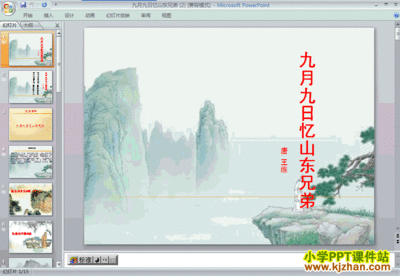首先,你现在来到这个世界,几万亿个游离的原子不得不以某种方式聚集在一起,以复杂而又奇特的方式创造了你。这种安排非常专门,非常特别,过去从未有过,存在仅此一回。在此后的许多年里,(我希望)这些小粒子将任劳任怨地进行几十亿次的巧妙合作,把你保持完好,让你经历一次极其惬意而又赏心悦目的旅程,那就是生存。
为什么原子这样自找麻烦,这还搞不大清楚。形成你,对原子来说并不是一件心旷神怡的事情。尽管它们如此全神贯注,组成你的原子其实对你并不在乎--实际上甚至不知道你在哪里。它们实际上也不知道自己在哪里。它们毕竟是没有头脑的粒子,连自己也没有生命。(要是你拿起一把镊子,把原子一个一个从你的身上夹下来,你就会变成一大堆细微的原子尘土,其中哪个原子也从未有过生命,而它们又都曾是你的组成部分,这是个挺有意思的想法。)然而,在你的生存期间,它们都担负着同一个任务:使你成为你。
原子很脆弱,它们的献身时刻倏忽而过--简直是倏忽而过,这是个坏消息。连寿命很长的人也总共只活大约100万个小时。而当那个不太遥远的终结点或沿途某个别的终点飞快地出现在你眼前的时候,由于未知的原因,你的原子们将宣告你生命的结束,然后散伙,悄然离去成为别的东西。你也就到此为止。
不过,这事儿还是发生了,你可以感到高兴。总的来说,据我们所知,这类事情在宇宙别的地方是没有的。这的确很怪,原子们如此大方、如此协调地聚集在一起,构成地球上的生物,而同一批原子在别处是不肯这么做的。不说别的,从化学的角度来说,生命只有这个世界上才有,真是不可思议:碳、氢、氧、氮、一点儿钙、一点儿硫,再加上一点儿很普通的别的元素--在任何普通药房里都找得着的东西--这些就是你的全部需要。原子们惟一特别的地方就是:它们形成了你。当然,这正是生命的奇迹。
不管原子在宇宙的别的角落是不是形成生命,它们形成许多其他东西;实际上,除了生命以外,它们还形成别的任何东西。没有原子,就没有水,就没有空气,就没有岩石,就没有恒星和行星,就没有远方的云团,就没有旋转的星云,就没有使宇宙如此动人、如此具体的任何别的东西。原子如此之多,如此必不可少,我们很容易忽视它们实际存在的必要性。
没有法则要求宇宙间充满物质微粒,产生我们所赖以生存的光、引力和其他物理性质。实际上也根本不需要宇宙。在很长时间里就没有宇宙。那时候没有原子,没有供原子到处飘浮的宇宙。什么也没有--任何地方什么也没有。
所以,谢天谢地,有了原子。不过,有了原子,它们心甘情愿地聚集在一起,这只是你来到这个世界的部分条件。你现在在这个地方,生活在21世纪,聪明地知道有这回事,你还必须是生物方面一连串极不寻常的好运气的受益者。在地球上幸存下来,这是一件非常微妙的事。自开天辟地以来,存在过上百上千亿物种,其中大多数--据认为是99.9%--已经不复存在。你看,地球上的生命不仅是短暂的,而且是令人沮丧的脆弱的。我们产生于一颗行星,这颗行星善于创造生命,但又更善于毁灭生命,这是我们的存在的一个很有意思的特点。
地球上的普通物种只能延续大约400万年,因此,若要在这里待上几十亿年,你不得不像制造你的原子那样变个不停。你要准备自己身上的一切都发生变化--形状、大小、颜色、物种属性等等--反复地发生变化。这说起来容易做起来难,因为变化的过程是无定规的。从"细胞质的原始原子颗粒"(用吉尔伯特和沙利文的话来说),到有知觉、能直立的现代人,要求你在特别长的时间里,以特别精确的方式,不断产生新的特点。因此,在过去38亿年的不同时期里,你先是讨厌氧气,后又酷爱氧气,长过鳍、肢和漂亮的翅膀,生过蛋,用叉子般的舌头舔过空气,曾经长得油光光、毛茸茸,住过地下,住过树上,曾经大得像麋鹿,小得像老鼠,以及超过100万种别的东西。这些都是必不可少的演变步骤,只要发生哪怕最细微的一点偏差,你现在也许就会在舔食长在洞壁上的藻类,或者像海象那样懒洋洋地躺在哪个卵石海滩上,或者用你头顶的鼻孔吐出空气,然后钻到18米的深处去吃一口美味的蚯蚓。
你不光自古以来一直非常走运,属于一个受到优待的进化过程,而且在自己的祖宗方面,你还极其--可以说是奇迹般地--好运气。想一想啊,在38亿年的时间里,在这段比地球上的山脉、河流和海洋还要久远的时间里,你父母双方的哪个祖先都很有魅力,都能找到配偶,都健康得能生儿育女,都运气好得能活到生儿育女的年龄。这些跟你有关的祖先,一个都没有被压死,被吃掉,被淹死,被饿死,被卡住,早年就受了伤,或者无法在其生命过程中在恰当的时刻把一小泡遗传物质释放给恰当的伴侣,以使这惟一可能的遗传组合过程持续下去,最终在极其短暂的时间里令人吃惊地--产生了你。
________________________
Welcome. And congratulations. I am delighted that you could make it. Getting here wasn't
easy, I know. In fact, I suspect it was a little tougher than you realize.
To begin with, for you to be here now trillions of drifting atoms had somehow to assemble
in an intricate and intriguingly obliging manner to create you. It's an arrangement so
specialized and particular that it has never been tried before and will only exist this once. For
the next many years (we hope) these tiny particles will uncomplainingly engage in all the
billions of deft, cooperative efforts necessary to keep you intact and let you experience the
supremely agreeable but generally underappreciated state known as existence.
Why atoms take this trouble is a bit of a puzzle. Being you is not a gratifying experience at
the atomic level. For all their devoted attention, your atoms don't actually care about youindeed,
don't even know that you are there. They don't even know that they are there. They are
mindless particles, after all, and not even themselves alive. (It is a slightly arresting notion
that if you were to pick yourself apart with tweezers, one atom at a time, you would produce a
mound of fine atomic dust, none of which had ever been alive but all of which had once been
you.) Yet somehow for the period of your existence they will answer to a single overarching
impulse: to keep you you.
The bad news is that atoms are fickle and their time of devotion is fleeting-fleeting indeed.
Even a long human life adds up to only about 650,000 hours. And when that modest
milestone flashes past, or at some other point thereabouts, for reasons unknown your atoms
will shut you down, silently disassemble, and go off to be other things. And that's it for you.
Still, you may rejoice that it happens at all. Generally speaking in the universe it doesn't, so
far as we can tell. This is decidedly odd because the atoms that so liberally and congenially
flock together to form living things on Earth are exactly the same atoms that decline to do it
elsewhere. Whatever else it may be, at the level of chemistry life is curiously mundane:
carbon, hydrogen, oxygen, and nitrogen, a little calcium, a dash of sulfur, a light dusting of
other very ordinary elements-nothing you wouldn't find in any ordinary drugstore-and that's
all you need. The only thing special about the atoms that make you is that they make you.
That is of course the miracle of life.
Whether or not atoms make life in other corners of the universe, they make plenty else;
indeed, they make everything else. Without them there would be no water or air or rocks, no
stars and planets, no distant gassy clouds or swirling nebulae or any of the other things that
make the universe so usefully material. Atoms are so numerous and necessary that we easily
overlook that they needn't actually exist at all. There is no law that requires the universe to fill
itself with small particles of matter or to produce light and gravity and the other physical
properties on which our existence hinges. There needn't actually be a universe at all. For the
longest time there wasn't. There were no atoms and no universe for them to float about in.
There was nothing-nothing at all anywhere.
So thank goodness for atoms. But the fact that you have atoms and that they assemble in
such a willing manner is only part of what got you here. To be here now, alive in the twentyfirst
century and smart enough to know it, you also had to be the beneficiary of an
extraordinary string of biological good fortune. Survival on Earth is a surprisingly tricky
business. Of the billions and billions of species of living thing that have existed since the
dawn of time, most-99.99 percent-are no longer around. Life on Earth, you see, is not only
brief but dismayingly tenuous. It is a curious feature of our existence that we come from a
planet that is very good at promoting life but even better at extinguishing it.
The average species on Earth lasts for only about four million years, so if you wish to be
around for billions of years, you must be as fickle as the atoms that made you. You must be
prepared to change everything about yourself-shape, size, color, species affiliation,
everything-and to do so repeatedly. That's much easier said than done, because the process of
change is random. To get from "protoplasmal primordial atomic globule" (as the Gilbert and
Sullivan song put it) to sentient upright modern human has required you to mutate new traits
over and over in a precisely timely manner for an exceedingly long while. So at various
periods over the last 3.8 billion years you have abhorred oxygen and then doted on it, grown
fins and limbs and jaunty sails, laid eggs, flicked the air with a forked tongue, been sleek,
been furry, lived underground, lived in trees, been as big as a deer and as small as a mouse,
and a million things more. The tiniest deviation from any of these evolutionary shifts, and you
might now be licking algae from cave walls or lolling walrus-like on some stony shore or
disgorging air through a blowhole in the top of your head before diving sixty feet for a
mouthful of delicious sandworms.
Not only have you been lucky enough to be attached since time immemorial to a favored
evolutionary line, but you have also been extremely-make that miraculously-fortunate in your
personal ancestry. Consider the fact that for 3.8 billion years, a period of time older than the
Earth's mountains and rivers and oceans, every one of your forebears on both sides has been
attractive enough to find a mate, healthy enough to reproduce, and sufficiently blessed by fate
and circumstances to live long enough to do so. Not one of your pertinent ancestors was
squashed, devoured, drowned, starved, stranded, stuck fast, untimely wounded, or otherwise
deflected from its life's quest of delivering a tiny charge of genetic material to the right
partner at the right moment in order to perpetuate the only possible sequence of hereditary
combinations that could result-eventually, astoundingly, and all too briefly-in you.
This is a book about how it happened-in particular how we went from there being nothing at
all to there being something, and then how a little of that something turned into us, and also
some of what happened in between and since. That's a great deal to cover, of course, which is
why the book is called A Short History of Nearly Everything, even though it isn't really. It
couldn't be. But with luck by the time we finish it will feel as if it is.
My own starting point, for what it's worth, was an illustrated science book that I had as a
classroom text when I was in fourth or fifth grade. The book was a standard-issue 1950s
schoolbookbattered, unloved, grimly hefty-but near the front it had an illustration that just
captivated me: a cutaway diagram showing the Earth's interior as it would look if you cut into
the planet with a large knife and carefully withdrew a wedge representing about a quarter of
its bulk.
It's hard to believe that there was ever a time when I had not seen such an illustration
before, but evidently I had not for I clearly remember being transfixed. I suspect, in honesty,
my initial interest was based on a private image of streams of unsuspecting eastbound
motorists in the American plains states plunging over the edge of a sudden 4,000-mile-high
cliff running between Central America and the North Pole, but gradually my attention did turn
in a more scholarly manner to the scientific import of the drawing and the realization that the
Earth consisted of discrete layers, ending in the center with a glowing sphere of iron and
nickel, which was as hot as the surface of the Sun, according to the caption, and I remember
thinking with real wonder: "How do they know that?"
I didn't doubt the correctness of the information for an instant-I still tend to trust the
pronouncements of scientists in the way I trust those of surgeons, plumbers, and other
possessors of arcane and privileged information-but I couldn't for the life of me conceive how
any human mind could work out what spaces thousands of miles below us, that no eye had
ever seen and no X ray could penetrate, could look like and be made of. To me that was just a
miracle. That has been my position with science ever since.
Excited, I took the book home that night and opened it before dinner-an action that I expect
prompted my mother to feel my forehead and ask if I was all right-and, starting with the first
page, I read.
And here's the thing. It wasn't exciting at all. It wasn't actually altogether comprehensible.
Above all, it didn't answer any of the questions that the illustration stirred up in a normal
inquiring mind: How did we end up with a Sun in the middle of our planet? And if it is
burning away down there, why isn't the ground under our feet hot to the touch? And why isn't
the rest of the interior melting-or is it? And when the core at last burns itself out, will some of
the Earth slump into the void, leaving a giant sinkhole on the surface? And how do you know
this? How did you figure it out?
But the author was strangely silent on such details-indeed, silent on everything but
anticlines, synclines, axial faults, and the like. It was as if he wanted to keep the good stuff
secret by making all of it soberly unfathomable. As the years passed, I began to suspect that
this was not altogether a private impulse. There seemed to be a mystifying universal
conspiracy among textbook authors to make certain the material they dealt with never strayed
too near the realm of the mildly interesting and was always at least a longdistance phone call
from the frankly interesting.
I now know that there is a happy abundance of science writers who pen the most lucid and
thrilling prose-Timothy Ferris, Richard Fortey, and Tim Flannery are three that jump out from
a single station of the alphabet (and that's not even to mention the late but godlike Richard
Feynman)-but sadly none of them wrote any textbook I ever used. All mine were written by
men (it was always men) who held the interesting notion that everything became clear when
expressed as a formula and the amusingly deluded belief that the children of America would
appreciate having chapters end with a section of questions they could mull over in their own
time. So I grew up convinced that science was supremely dull, but suspecting that it needn't
be, and not really thinking about it at all if I could help it. This, too, became my position for a
long time.
Then much later-about four or five years ago-I was on a long flight across the Pacific,
staring idly out the window at moonlit ocean, when it occurred to me with a certain
uncomfortable forcefulness that I didn't know the first thing about the only planet I was ever
going to live on. I had no idea, for example, why the oceans were salty but the Great Lakes
weren't. Didn't have the faintest idea. I didn't know if the oceans were growing more salty
with time or less, and whether ocean salinity levels was something I should be concerned
about or not. (I am very pleased to tell you that until the late 1970s scientists didn't know the
answers to these questions either. They just didn't talk about it very audibly.)
And ocean salinity of course represented only the merest sliver of my ignorance. I didn't
know what a proton was, or a protein, didn't know a quark from a quasar, didn't understand
how geologists could look at a layer of rock on a canyon wall and tell you how old it was,
didn't know anything really. I became gripped by a quiet, unwonted urge to know a little
about these matters and to understand how people figured them out. That to me remained the
greatest of all amazements-how scientists work things out. How does anybody know how
much the Earth weighs or how old its rocks are or what really is way down there in the
center? How can they know how and when the universe started and what it was like when it
did? How do they know what goes on inside an atom? And how, come to that-or perhaps
above all-can scientists so often seem to know nearly everything but then still can't predict an
earthquake or even tell us whether we should take an umbrella with us to the races next
Wednesday?
So I decided that I would devote a portion of my life-three years, as it now turns out-to
reading books and journals and finding saintly, patient experts prepared to answer a lot of
outstandingly dumb questions. The idea was to see if it isn't possible to understand and
appreciate-marvel at, enjoy even-the wonder and accomplishments of science at a level that
isn't too technical or demanding, but isn't entirely superficial either.
That was my idea and my hope, and that is what the book that follows is intended to be.
Anyway, we have a great deal of ground to cover and much less than 650,000 hours in which
to do it, so let's begin.

 爱华网
爱华网



